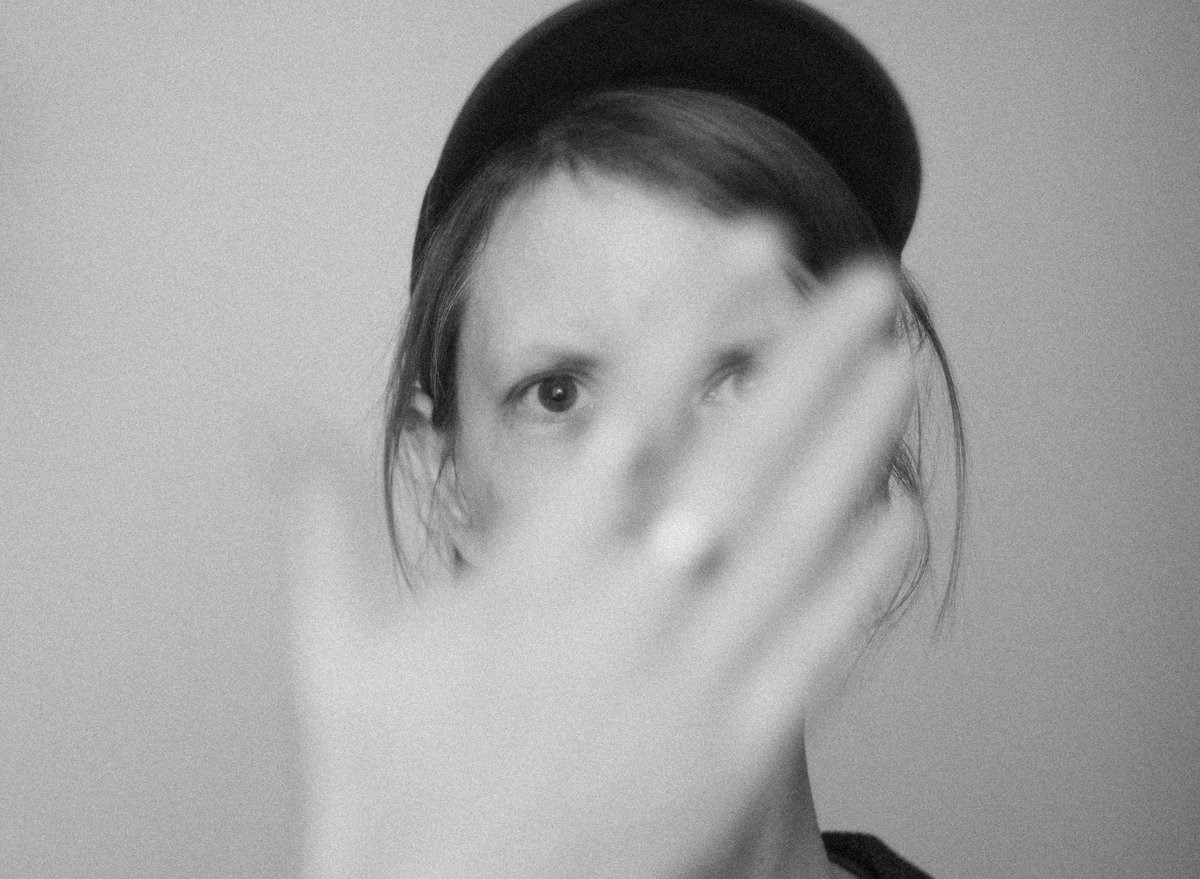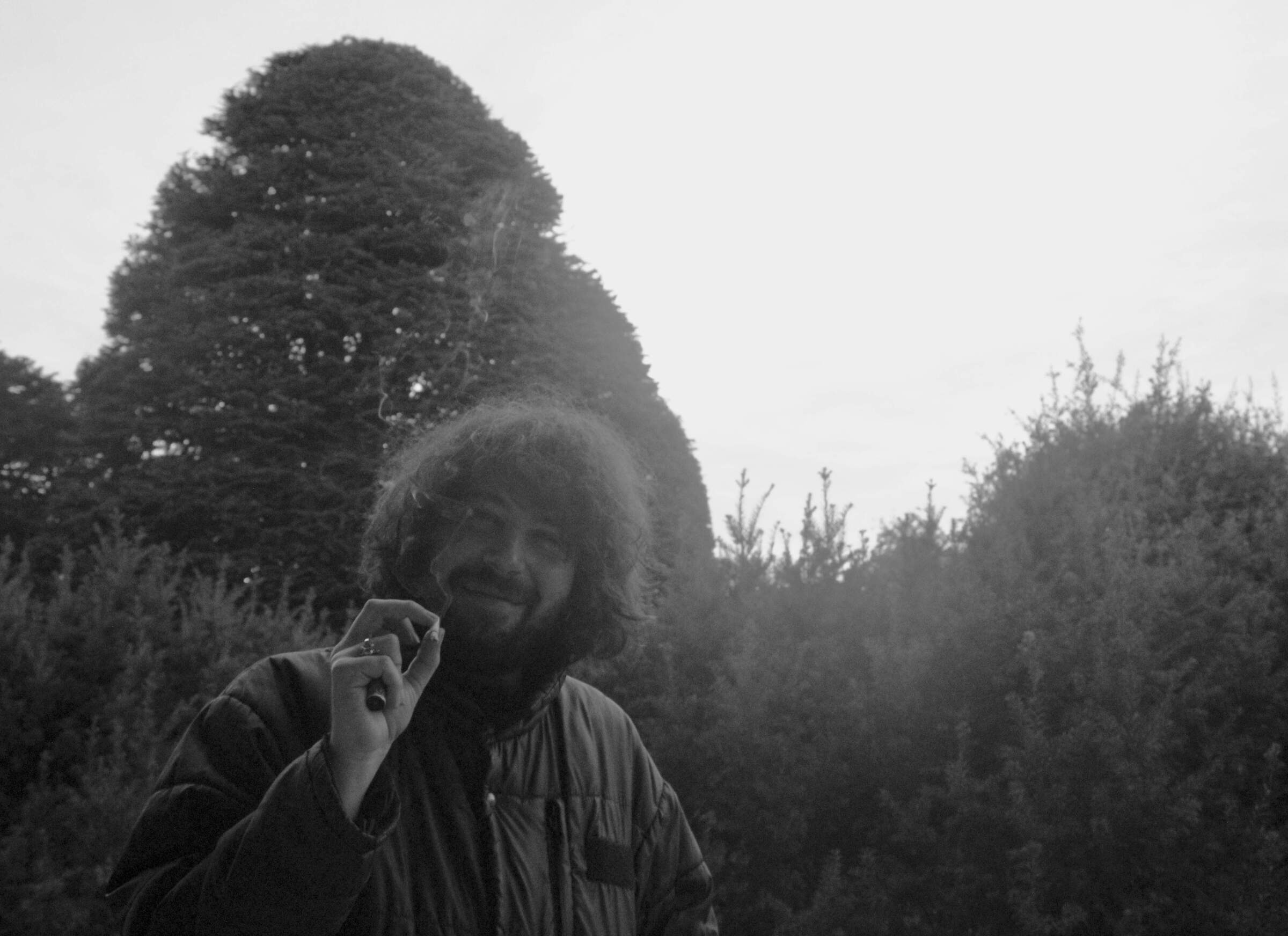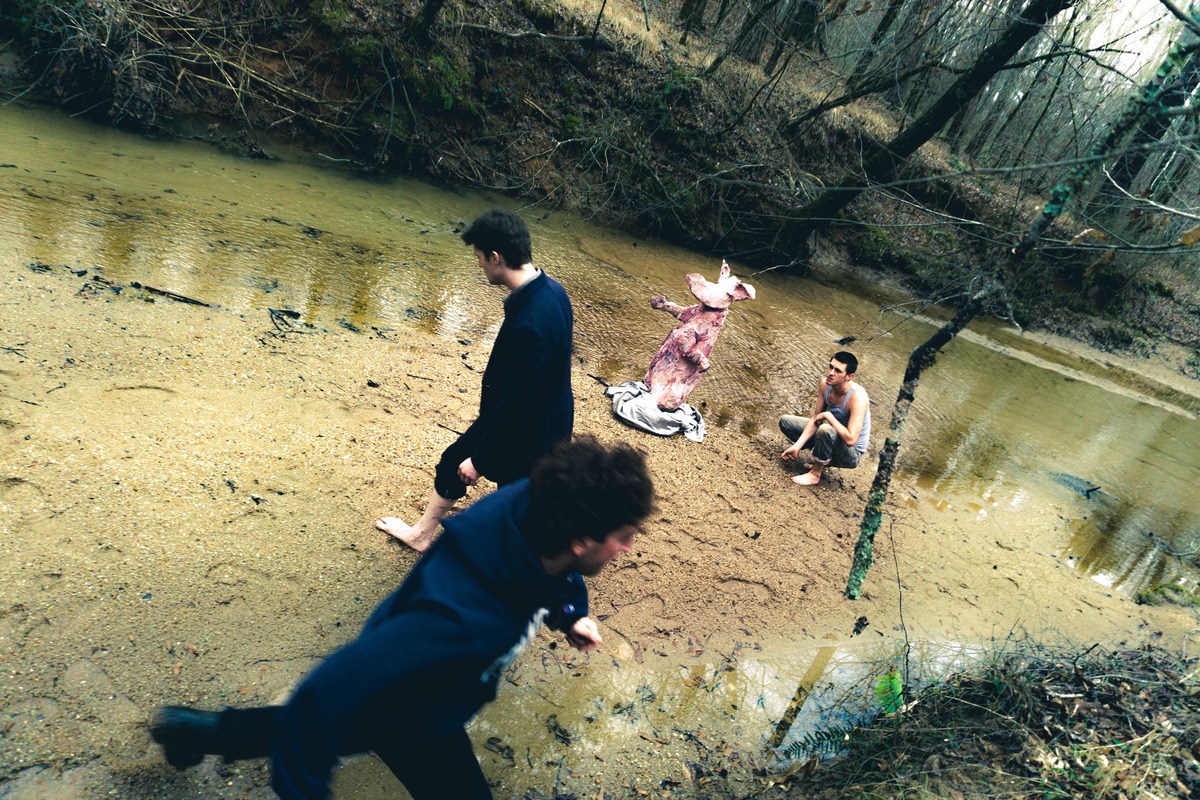Zopp interview
Zopp was set out with the intention of bringing the 70’s Canterbury Scene sound into the 21st century by fusing it with ambient, jazz and classical elements, all while maintaining integrity by using the same instruments and sounds that were used on those classic albums.
Zopp is your own project that you’re sharing with Andrea Moneta who is also part of Leviathan. Would you like to talk a bit about your background?
Ryan Stevenson: My personal background: I’m a self taught musician, primarily on guitars and keyboards, and I’ve been writing and recording music by myself, in, let’s call it my bedroom, for the last 14 years or so. Over this time, I’ve developed my abilities in producing, writing, arranging, recording etc. I also studied a course in music technology at college 12 years ago, where I first came across Pro Tools (A digital audio workstation DAW). I’ve been using Pro Tools ever since. I started writing Zopp music 10 years ago. Half of the album was written between 2010-2015, this includes tracks (“Before The Light”, “Sanger”, “The Noble Shirker”, “Zero”, “V”). Since 2016 I’ve been working on film music now and again. I really starting working on this album from late 2017 when I met Andrea Moneta, who plays drums with Zopp.
“The Canterbury element is prevalent throughout the album.”
You were inspired by many 70’s Canterbury Prog scene. How would you describe your sound?
The Canterbury element is prevalent throughout the album. I used a lot of fuzz organs which are pretty close to the sound of Egg and National Health, but the album has all sorts of different elements. There’s a track called “Being And Time” on the album which has a heavy section in the middle, with a hard bass drum beat like some industrial/ hard techno music. Ambient sounds can be heard throughout the record, which is not typically Canterbury. I don’t mind the Canterbury tag at all, but I like to think that this album is exploring new musical territories too.
The sound of the record I would say is organic or earthy- not too polished. The keyboards are dominant on the record and that was a conscious decision because I’m not a big fan of too much guitar music, unless the guitar is used in an interesting way. I like to stick to organs, pianos, with a subtle touch of synth here and there. I also sometimes love phase effects on guitars and keys. Andy Tillison added a nice phaser effect to an organ in the quiet middle section of “Eternal Return”. I’m just interested in creating music that I want to hear basically, so I will leave sound descriptions to journalists.
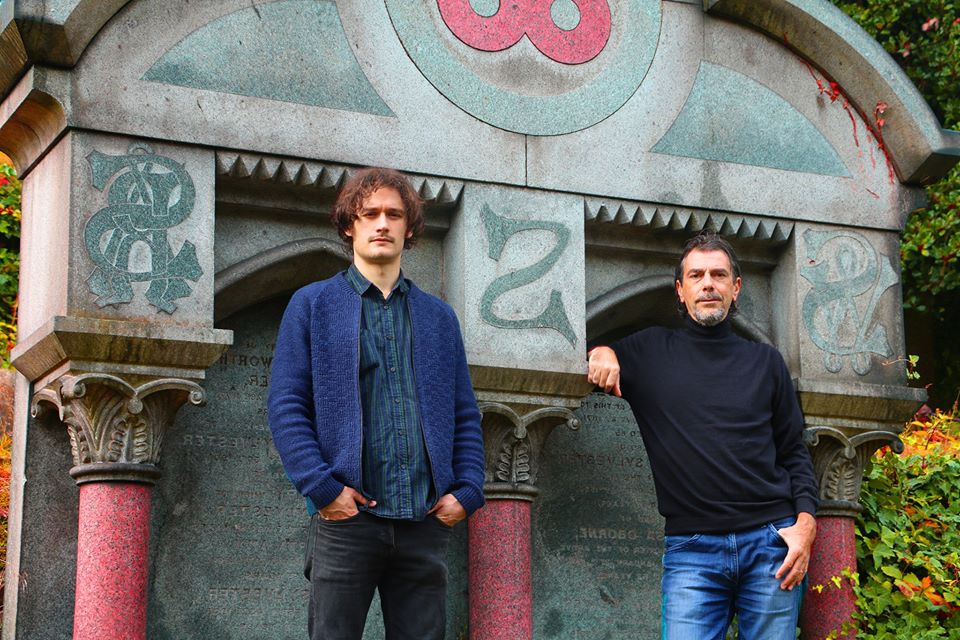
What are some bands that have a big influence on you apart from well known Canterbury bands?
Good question. I’ve always returned to a band called Dungen, pronounced ‘Dung-Yen’. They have been a big inspiration. I first got into them through a forum member on Anekdoten’s website back in the mid 2000s. They’re a modern Swedish psych /rock/ pop / prog band, that’s how I would classify them. Anekdoten’s music has always been important to me.
When I started writing Zopp music in 2010, Norwegian band Jaga Jazzist were a BIG inspiration. In fact “The Noble Shirker”, the last track on the record, was inspired by their One Armed Bandit album. They have so many different layers in the production.
Steve Reich’s modern classical music has also had an impact on my writing. In particular The Desert Music and Music for 18 Musicians. I like a lot of staccato, which you can hear most evidently in tracks like “V”, “Being And Time” and maybe bits of “The Noble Shirker”. I love music with a pulse, which is probably why I like electronic/techno music too.
How did you two get together to form this project?
Zopp started out as a passion project, where I wrote music that I wanted to hear myself. In 2015 I decided to experiment with playing in bands, but after a couple of years I returned to the studio, this time with a clear intention of working on and releasing my first record. I collected other songs that I’d written since 2015. After a few months of searching for a drummer, Andrea Moneta responded to an ad I posted online and I’ve been very grateful to work with him since late 2017; he’s an amazing musician, classically trained and very fast at learning.
What does the name “Zopp” refer to in the context of the band name?
Zopp is a word I made up. Around 10 years ago when I started this, I went to a record store in my hometown where I bought a few Frank Zappa CDs (the late 60’s and early 70’s period is the most appealing for me). The record store is called Fopp and it’s still there. So I combined Fopp with Zappa to make Zopp. The early Zopp material was a Zappa pastiche, but the music quickly morphed into something more eclectic…
When did you decide that you wanted to start writing and performing your own music? What brought that about for you?
Interesting question. I think it’s just something I’ve naturally gravitated towards- recording and crafting sound, ever since I first picked up an instrument around the age of 14. I remember in my early teens, I would regularly play on my dad’s Yamaha workstation/ keyboard and it had some basic midi multi-tracking feature and limited programmable drum patterns. After I composed a song, I remember hooking it up to a tape deck and recording it directly to a cassette. The anticipation of putting the cassette in the walkman for the first time and going out for a walk and listening was amazing. I’ve never lost that magical feeling. When I’m working on songs today, I do the same thing; I normally bounce a demo version down to my mp3 player, go for a walk and listen. It’s important to hear your music in a different environment, on headphones, in the car, whilst out and about.
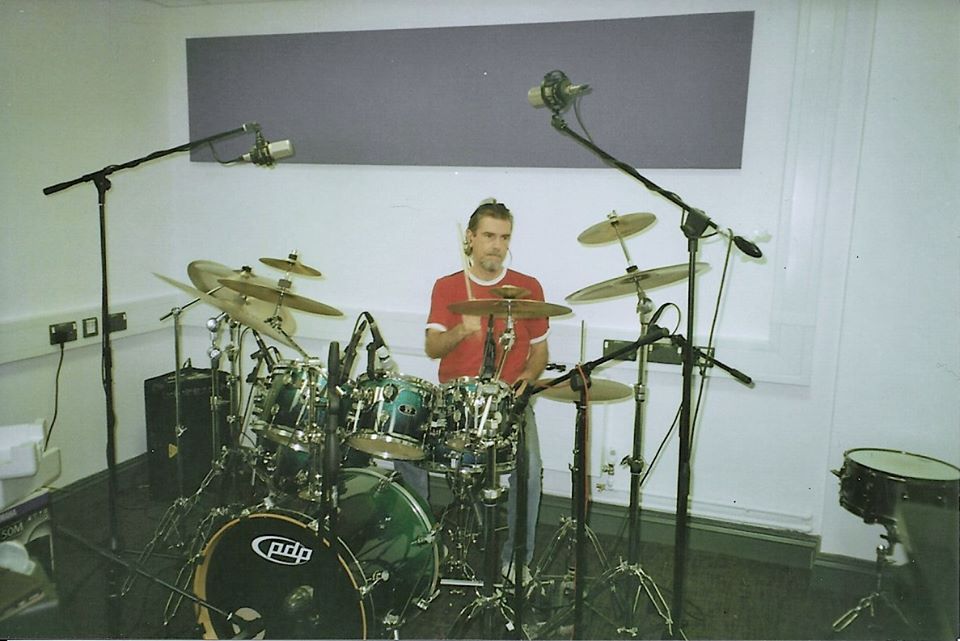
How do you usually approach music making?
Different ways. You have to mix it up to stay creative. On the first album some tracks came about by being inspired by a specific song from an artist, or an element of a song and building upon that idea. For example, I remember that “Before The Light” was inspired by a bass line in “Enneagram” by Egg. Although my bass line ended up sounding nothing like “Enneagram”. “Swedish Love” came about in a similar way; I wanted to write something similar to “Brujo” by National Health, except my track is a lot shorter… “Sanger” also came about this way because I was fascinated by “Agrippa” by National Health; I wanted to create a complex track that had an unconventional structure, but flowed, and I think it was a successful experiment. Mont Campbell’s compositions have been a big inspiration. The rest of the material on the album was written more spontaneously, with nothing in mind to begin with.
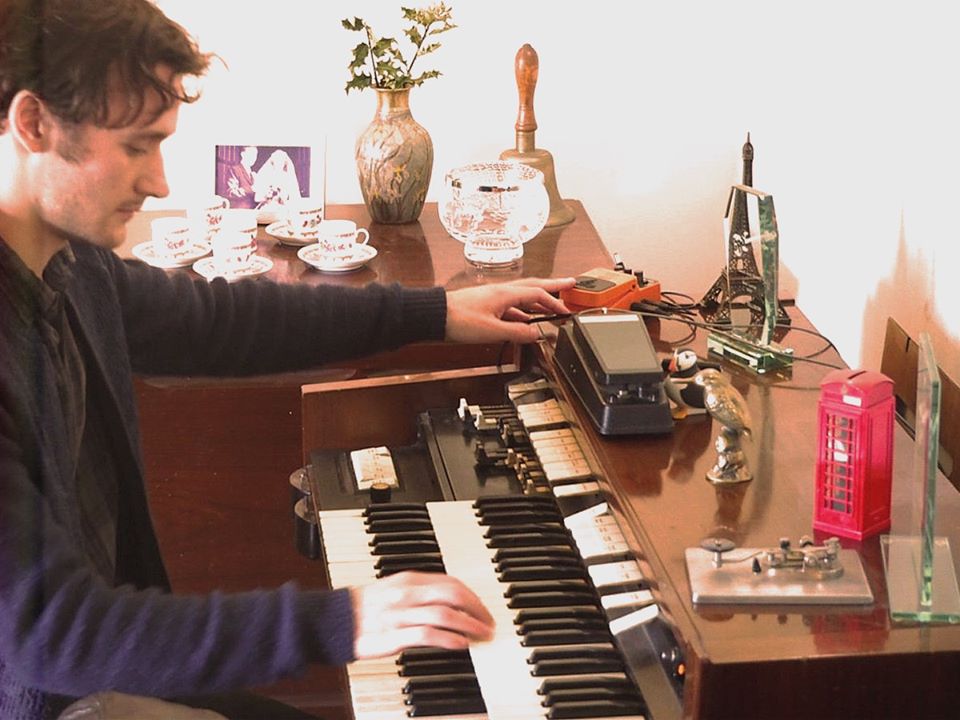
Most of the time, I start on the piano and I’m searching for interesting melodies and chords. If the ideas are too generic or predictable to me, I scrap it. I can’t read music, and I’m not interested in learning at the moment, so I rely on my ear and multi-tracking in the studio to compose. Sometimes it’s difficult when I’m writing because I have to work quickly to get all the elements down, such as demo drum track, the bass line, melodies, harmonies etc before I forget the idea, or before I get completely bored with the whole thing… so I’m quickly swapping instruments during the early writing/ recording stages. Everything has to work in context when composing in these early stages, like getting the right guitar sound or rhythm early on, to get a clear picture of what I’m aiming for. Hope this makes sense.
Can you share some further details how your album was recorded?
I recorded all of the guitars and keyboards at my home studio. I think I replaced maybe 2/3rds from the original demos that I recorded between 2010-2015. Additional keys were recorded at Andy Tillison’s home in the Yorkshire countryside. Andy played a couple of lines here and there too.
I wrote for female voice and saxophone. Caroline Joy Clarke (voice) recorded from her home studio in Shropshire and so did Mike Benson (Tenor Sax), in New York. I instructed Caroline to sing with no vibrato and I sent her Hatfield and the North’s “Mumps” as a reference. She nailed it. She’s also classically trained. Mike blasted out some decent solos for the “The Noble Shirker” too.
Theo Travis also played and recorded from his home studio. While I was up in Yorkshire working on the album, Andy T informed me that Soft Machine were playing in York, so we went down to the gig and we met Theo after. We had a chat about him playing on the album; Andy had previously sent him the material and he said he liked it and so he performed on “V”.
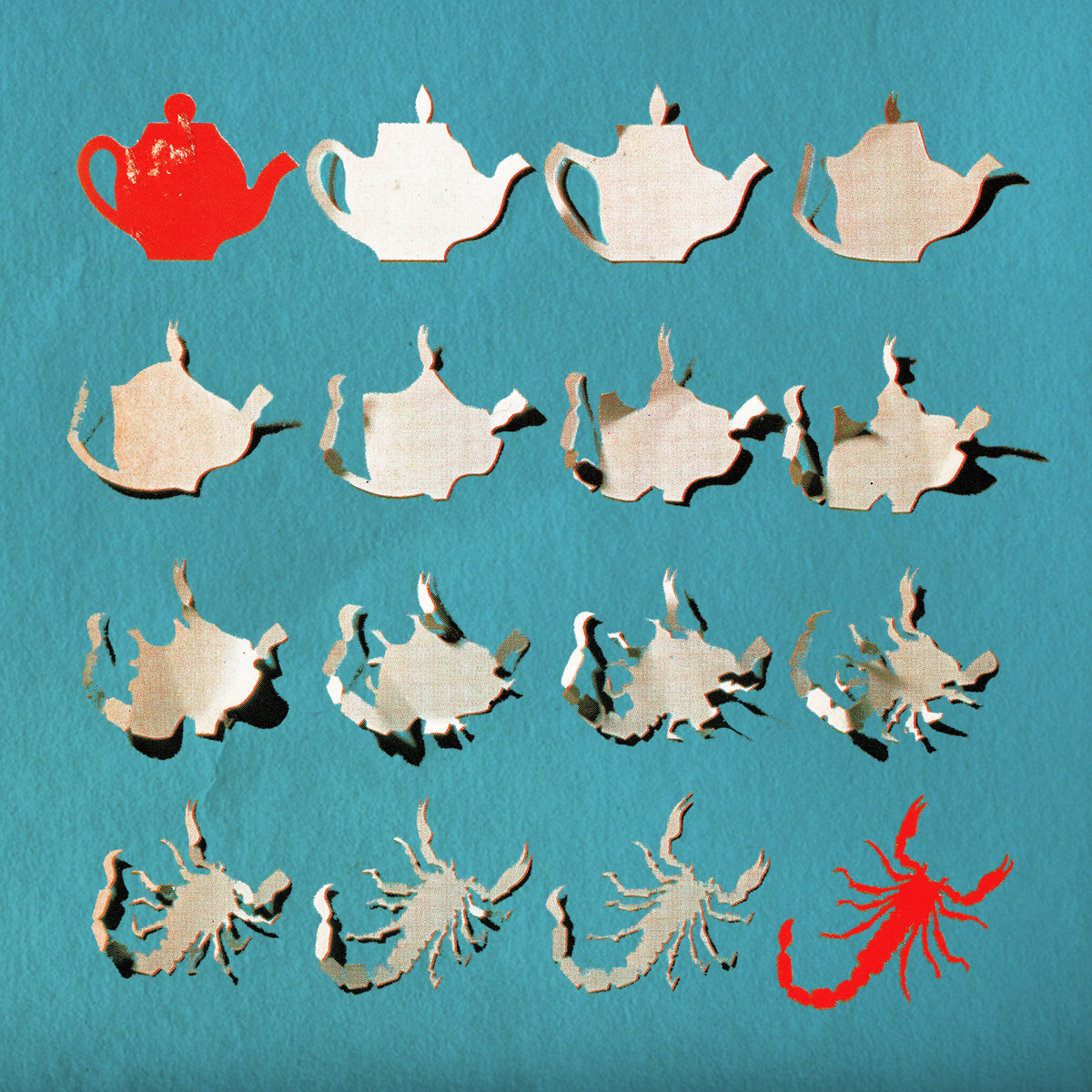
We recorded drums at Nottingham Trent University Music Department, in the summer of 2018. Andrea is a lecturer at the university. We had the whole music department to ourselves for a weekend, as all students were on summer vacation. There were no windows in the room where we recorded drums and it was a very hot weekend in the middle of summer. Andrea did a great job of setting the mics up and getting the right sound. We could make as much noise as possible without being disturbed!
What kind of equipment did you use and who was the producer? How many hours did you spend in the studio?
I used: Mellotron M4000D, Hammond organ, Arturia analogue synthesizer, Korg CX-3 organ, piano, Hohner Pianet T, Nord Electro 5d, bass and electric guitars. I used ‘real’ instruments, no midi. I’ve got nothing against midi at all, but it’s just the way I work; I play from a real instrument and record.
I produced the album and Andy Tillison co-produced/ engineered in some areas, where he suggested to cut certain parts, or add some colours here and there which improved the overall sound of the album. It was reassuring to discuss ideas with a professional like Andy.
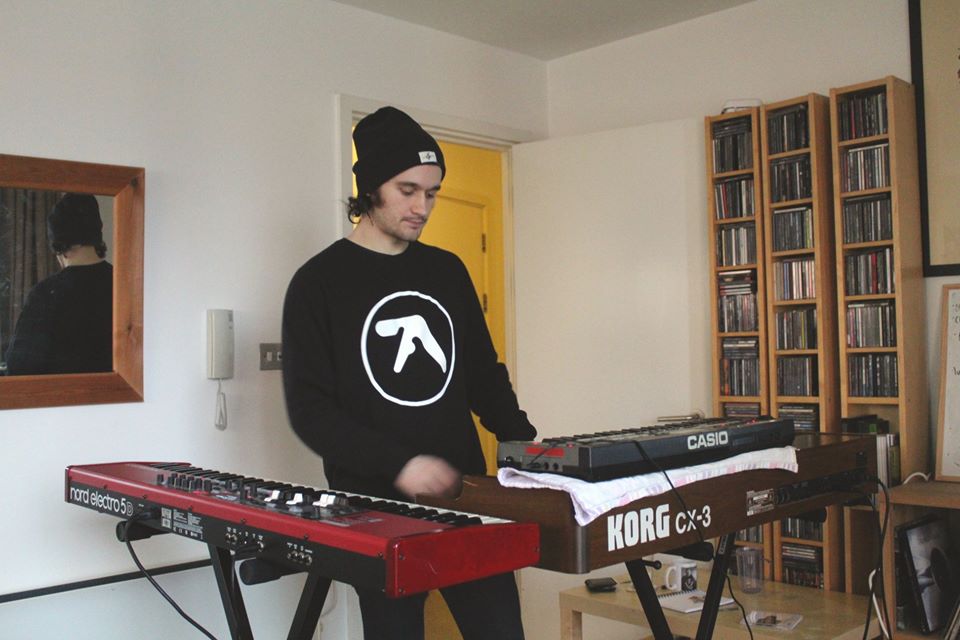
Most of these tracks only took a few days to write, meaning the basic skeleton of the track, the main structure. The production, mixing and fine tuning took a lot longer- you know just fixing a track until you’re happy with it. I entered the studio to re-produce and re-record from the demos, from September 2018 and I finished a demo mix of the album that I was happy with around March/April 2019. I’m not a great player on any instrument, so I had to spend time practicing solos, parts, and recording the music incrementally. Then it was a case of moving the files to Andy’s studio and working there, on and off, from May 2019 to January 2020, when the final mix and masters were finished.
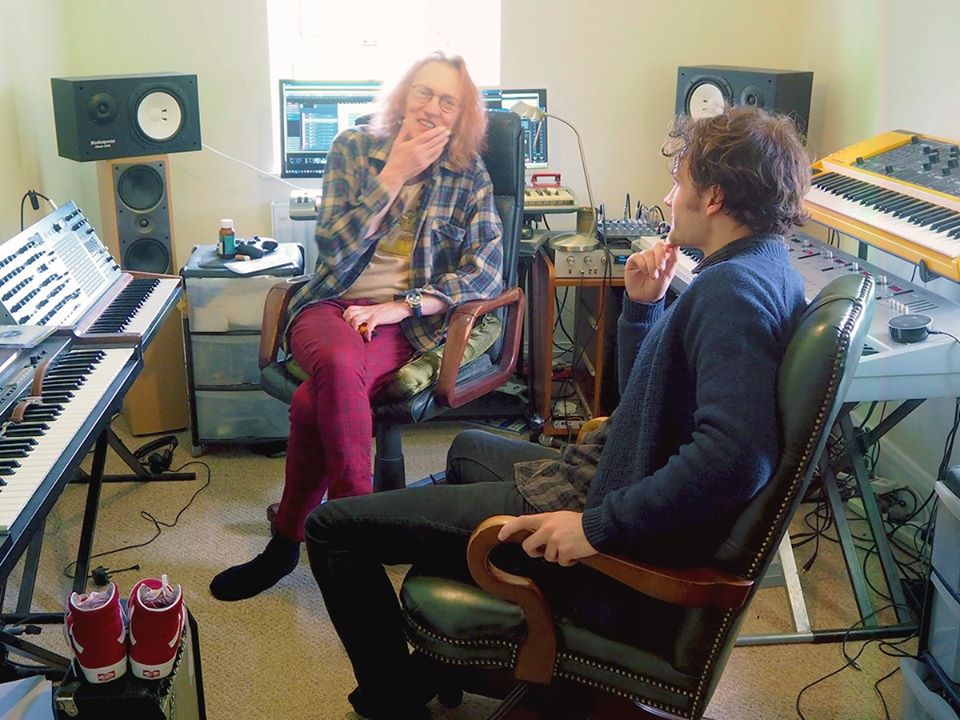
How pleased were you with the sound of the album?
Yes very pleased. It’s not a super loud album, plenty of dynamics which is better on the ears. There are a few things that I would like to change listening back to the mix, but sometimes things are never perfect are they? and some imperfections add a bit of charm. Overall, I can still listen back to the album and really enjoy it, which is positive.
Do you often play live?
No, not at the moment. I rehearse a lot with Andrea, but Zopp is currently just two people really and I’m not comfortable with performing this music live with just two people. However, I would love to play Zopp live in the future if I can find some more musicians to join us. I would probably play the bass guitar live, but I’m not sure yet. If anyone thinks they’re up for the job, get in touch!
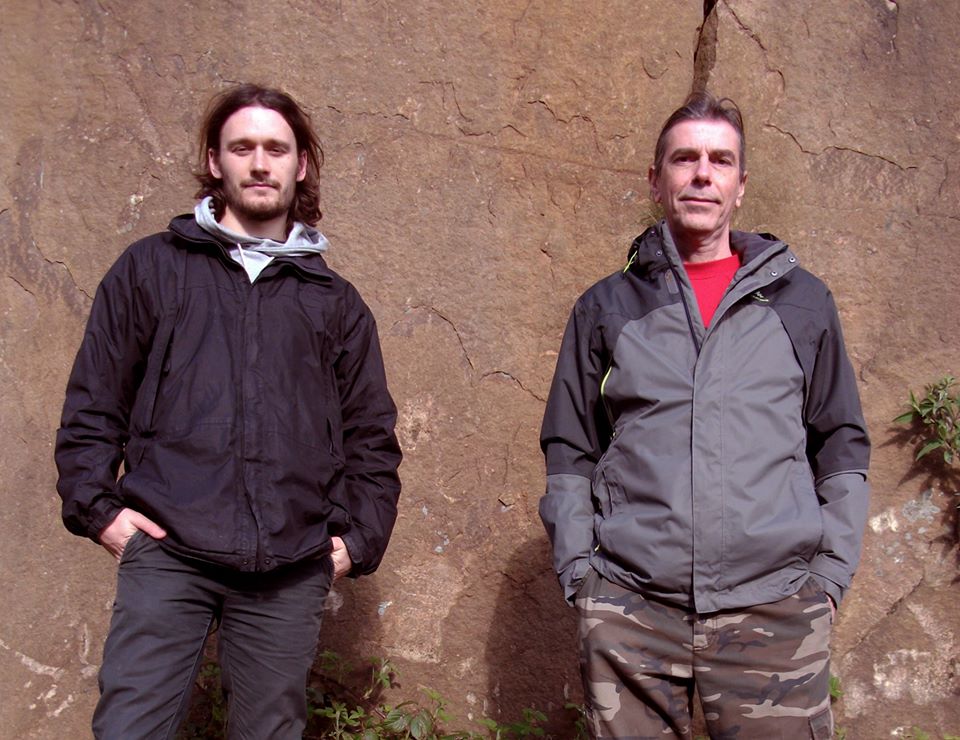
What are some future plans?
I’m writing and recording the next record at the moment. No idea when it will be finished, but it won’t take another 10 years for sure! The material is promising so far.
Do you have any active side-projects going on at this point?
Well I write for some film music projects. In this lock-down climate though, some things are on hold, but people can ‘like’ my personal music page for any updates and of course Zopp.
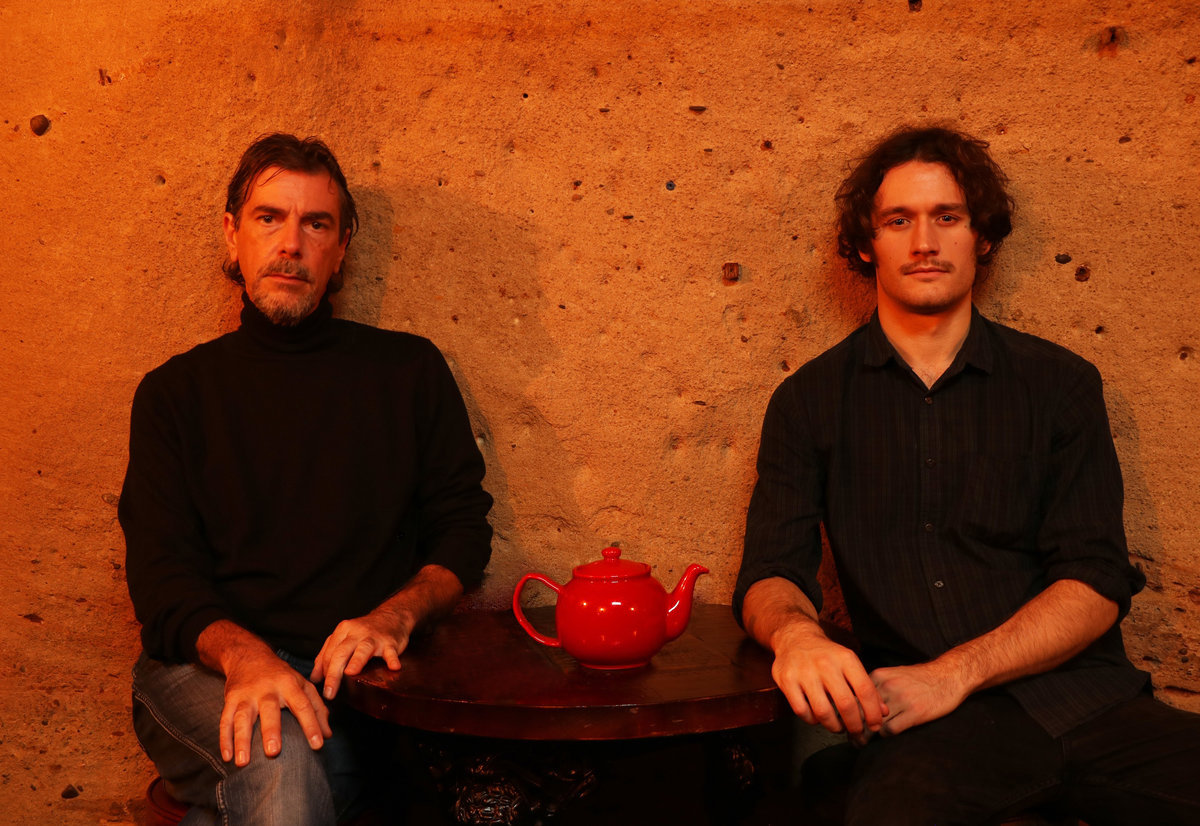
Let’s end this interview with some of your favourite albums. Have you found something new lately you would like to recommend to our readers?
I’m currently listening to The Mars Volta. Amazing band. They’re able to combine all sorts from latin American music, to Jazz, to prog, to hardcore. I’m also getting into Crosby, Stills, Nash and Young; beautiful vocal harmonies. If you like the Zopp sound, maybe check out Elephant9 from Norway. They’re a jazz prog band. Reine Fiske from Dungen plays with them now and again.
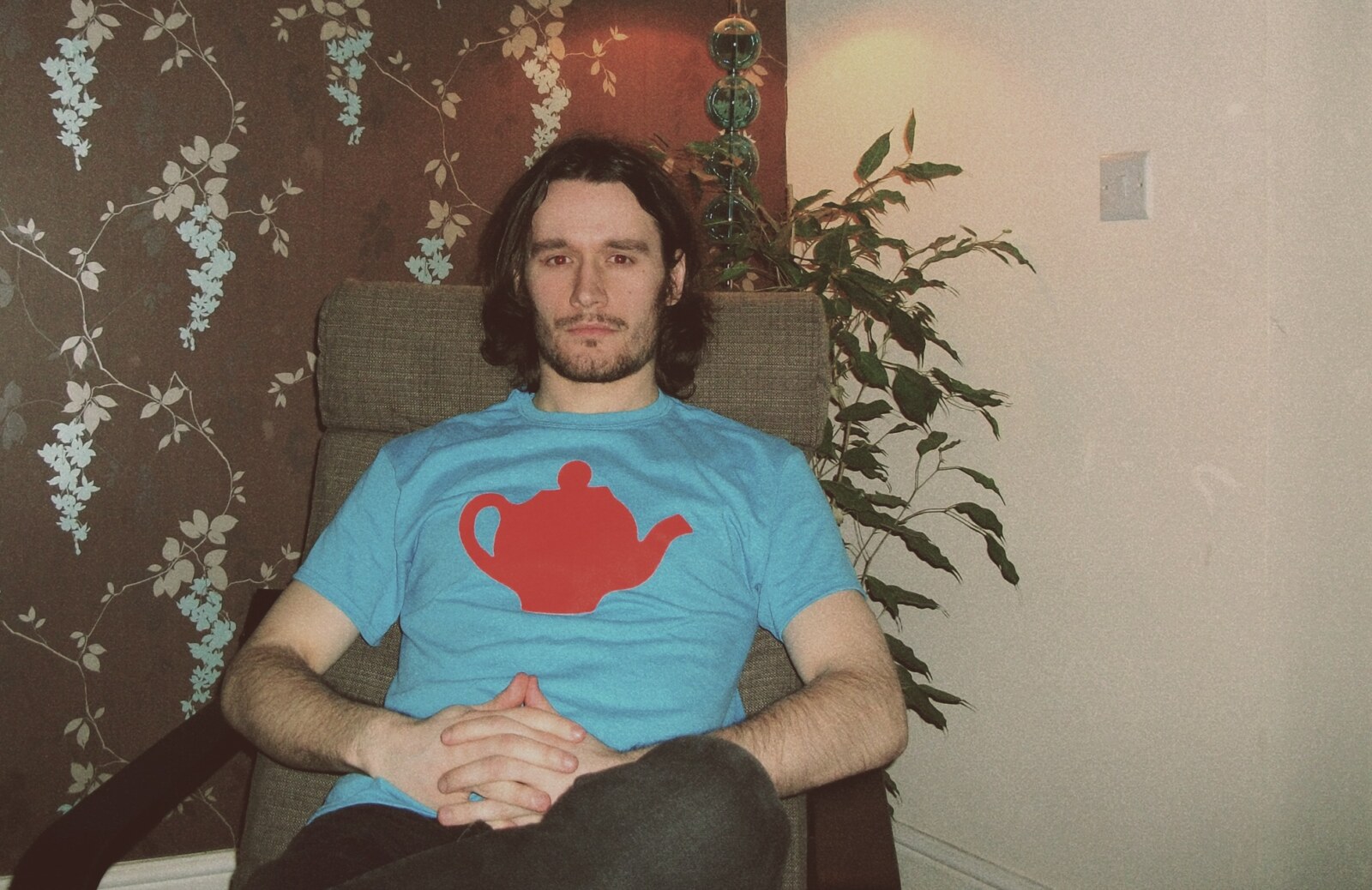
Thank you. Last word is yours.
Thank you!
Life is short, make the most of it- pursue your passions and something meaningful. Don’t watch TV or listen to the mainstream media because most of it is lies, misinformation and scaremongering, especially in the news. Look after yourself, your friends, family and community.
– Klemen Breznikar
Ryan Stevenson Facebook
Bad Elephant Music Official Website

